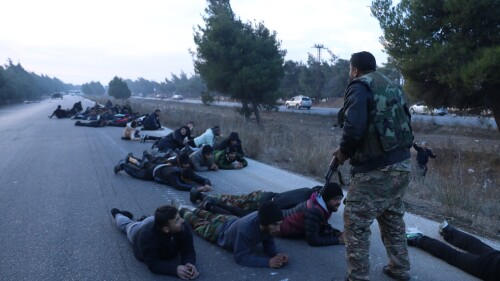
Last week, Turkey’s president, Recep Tayyip Erdoğan, threw the international community into a tizzy when he announced that Sweden should “not expect” Turkey’s support to join NATO
Last week, Turkey’s president, Recep Tayyip Erdoğan, threw the international community into a tizzy when he announced that Sweden should “not expect” Turkey’s support to join NATO after a far-right politician burned a Quran at a protest in front of the Turkish Embassy, ironically, in protest of Turkey’s duplicity concerning Sweden’s bid to join NATO. For months, the addition of Sweden to NATO was treated as a fait accompli by the West, perhaps just requiring a little more cajoling of Ankara, even though Turkey had not technically taken final steps to admit Sweden.
While there is ambiguity in Erdoğan’s words, they threw NATO enlargement into doubt at a time when almost all member nations are pushing for more unity in support of Ukraine’s war against Russian aggression. Erdoğan’s actions are jeopardizing major geopolitical events and hampering the interests of his fellow NATO members, potentially even jeopardizing the long-term health of the alliance itself.
Why?
The situation is complicated and fluid, but suffice it to say, Western officials have been underestimating Erdoğan’s toxicity from the beginning. Several trends, too little considered by Washington and European leaders, have led to this moment. Getting beyond Turkey’s obstinance will be tricky.
Before the Quran-burning incident, Turkey was dragging its feet on Sweden’s joining NATO ostensibly due to Sweden’s soft treatment of the Kurdistan Workers’ Party (PKK). This organization is made up of mostly Turkish-born members. It is designated by Turkey and many other countries (including the U.S. and Sweden) as a terrorist organization. To appease Ankara, Sweden has strengthened some counterterrorism laws and has extradited some Kurds whom Turkey considers terrorists, although the Swedish judiciary has disallowed the extradition of others.
However, while Turkey may genuinely be concerned about the activities of some Swedish Kurds, Erdoğan’s true agenda is different.
The fall of the Ottoman Empire resulted both in the founding of modern Turkey and the wranglings that left the Kurds as the largest stateless ethnicity in the world.
Turkey has been in a struggle with Kurdish political movements of all sorts since the fall of the Ottoman Empire resulted both in the founding of modern Turkey and the resulting wranglings that left the Kurds as the largest stateless ethnicity in the world. Sweden’s large Kurdish population (estimated to be between 100,000 and 150,000) is politically active, and the current government requires the cooperation of Kurdish politicians for its one-seat majority in parliament. This has led Sweden to increase support for the Syrian People’s Protection Units (YPG) and its political arm, the Democratic Party Union (PYD), which controls a semiautonomous zone in northern Syria.
Erdoğan considers the PYD simply a branch of the PKK, but the PYD, which controls the Syrian Democratic Council, is not widely viewed in this way outside of Ankara. Instead, most other nations view the YPG as a key part of international anti-ISIS efforts and an inspiring example of religious and ethnic tolerance in the Middle East. Nonetheless, Erdoğan has launched three major incursions against the Syrian Kurds since 2016 and remains in a state of low-key warfare against the YPG and its allies. These operations also endanger Syria’s dwindling Christian population, many of whom have found refuge in Kurdish-controlled areas of Syria. That is, it seems likely that Erdoğan’s real goal is to weaken or eliminate Swedish support for Kurdish autonomy in Syria.
Ankara’s rage over a crude far-right protest that included the burning of a Quran, particularly considering the relative silence of many other majority-Muslim states, might surprise people who still think of Turkey in terms of the secular republic created by Mustafa Kemal Atatürk. But put plainly, this is not your grandfather’s Turkey. During Erdoğan’s two-decade rule, he has moved Turkey markedly in his own pan-Islamist, neo-Ottoman ideological direction. In the words of one scholar, Turkey’s educational system now features one of the most “supremacist and intolerant curricula in the Muslim world” and actively promotes radical Islam in other countries as well. Having fostered such sentiments among its own population for years, Ankara’s rage, in part, may be real.
But it is also a tactic. While Erdoğan has no real friends in the Arab world (except Qatar), he has actively courted Islamist and Islamist-leaning countries such as Pakistan, Afghanistan, and Malaysia. His goal seems to be to create an Islamist bloc at a time when much of the Arab world is drifting away from Islamism. By pounding Sweden over this protest, he presents himself as a leader, and a desirable partner, to other leaders who seek to weaponize political Islam.
Erdoğan’s goal seems to be to create an Islamist bloc at a time when much of the Arab world is drifting away from Islamism.
This is not only about foreign governments. Top Erdoğan aides have deemed international Islamist movements, such as the Muslim Brotherhood of the Arab world and South Asia’s Jamaat-e-Islami, as “soft-power proxies” for Ankara. During a recent trip to the United Nations, Erdoğan made his first stop a meeting with top Islamist leaders in the U.S., who, in turn, themselves advocate for Turkey.
The ideological shift that has occurred under Erdoğan has further implications. Unlike Atatürk and most of his predecessors, Erdoğan sees NATO and its member countries as allies in name only. This can be seen in numerous actions in recent years too many to list, but also in leaked documents, which indicate that Erdoğan wants to “f*** . . . NATO,” which he deems “just as terrorist as Israel,” and in his internal actions, such as purging Turkish generals who served with NATO or in allied Western countries. In other words, it should not be assumed that Erdoğan wants to help NATO. The opposite may well be closer to the truth.
Indeed, the past seven years have seen a marked turn in Ankara toward NATO’s foe, Russia. The tipping point occurred when Russia’s Vladimir Putin became the first world leader to offer support for Erdoğan during the 2016 coup attempt, a brilliant move by Putin who is still receiving dividends for his calculating action. Not long after, Ankara purchased Russia’s S-400 air-defense system, a move seen as the antithesis of NATO’s interests and a violation of the Countering America’s Adversaries through Sanctions Act. In spite of the fact that the U.S. offered Ankara comparable equipment and expelled it from the advanced F-35 fighter program, Turkey has persisted in a pro-Russian direction. Indeed, according to a former Turkish parliamentarian, Turkey’s actions at the start of the Russian invasion of Ukraine, such as blocking the Black Sea, leaned toward Russia, a fact missed by senior Biden-administration officials. This is not exhaustive.
Putin, for his part, knows this. Recent reports indicate that the protest by the far-right Swedish politician who burned the Quran was organized and financed by Chang Frick, a former employee of Russia Today, a Kremlin-backed propaganda network. While he claims to have become unsympathetic toward Russia after the 2014 invasion of Crimea, he referred to Putin as “his boss” as late as 2019, although some claim he was joking. Either way, whether the Quran-burning incident was the result of a paid Kremlin operation or simply one born out of ideological sympathy for Putin’s outlook, it is fair to say that pro-Russian ideology is actively assisting in driving Turkey away from Sweden.
While Erdoğan purchased the S-400 missile and got kicked out of the F-35 program, he continues to rely on the West for military equipment.
There is also a more hard-nosed dynamic at play here. The Washington Post‘s editorial board recently opined that Erdoğan is a “tireless haggler” and observed that any leverage he is able to gain, he will use, if he deems it in his interest, “to extract concessions from his NATO allies and excite his nationalist base ahead of Turkey’s elections.”
While Erdoğan purchased the S-400 missile and got kicked out of the F-35 program, he continues to rely on the West for military equipment. Ankara is trying to get approval from Washington to purchase advanced F-16s and upgrade kits for existing F-16s, and even assuming the Biden administration continues to support the sale, considering Ankara’s actions toward Sweden, it is difficult to see how a deal would survive a hostile Congress. It is entirely possible that Erdoğan’s actions regarding Sweden are in significant part a ploy to strong-arm Washington on weapons sales. That is, Erdoğan is obstructing the entry of an important European state into NATO in order to give himself a bargaining card that he can later trade for concessions from Washington on arms sales.
So Erdoğan has nationalist/ethnic concerns (Kurds), religious/ideological motivations (Islamism), and geopolitical (tilting away from NATO/toward Russia) and cynically tactical reasons (arms sales) for his belligerence toward Sweden.
But while Erdoğan has many reasons to want to beat up on Sweden and even to keep it out of NATO, it is also true that he may not want to permanently rupture his relationship with the U.S. and the rest of Europe, if for no other reason than that he must survive his next election. While some believe Erdoğan has so thoroughly rigged the game by banning opposing political parties, jailing opposition journalists, and taking numerous other anti-democratic actions that he is virtually incapable of losing, it seems fair to say he’s not acting like he’s invincible.
So long as Erdoğan is in power, Ankara will be hostile toward Sweden and will care little for vital NATO interests or for strengthening the alliance in the face of Russian aggression in Ukraine.
And he’s got real problems. Erdoğan faces runaway inflation well beyond what other countries are facing, in part because of his basing his monetary policy on his interpretation of Islamic law. The rapprochement with Israel and Arab rivals that has occurred over the last year or so should be seen as an attempt to paper over his economic mismanagement for just long enough to survive the next election. It appears to be paying off — Abu Dhabi recently invested $10 billion. Completely alienating Europe or the U.S., meanwhile, could tank markets even more.
This hodgepodge of competing interests, goals, and tactics is difficult if not impossible to sort out cleanly, and nobody but Erdoğan knows what his true goals, or red lines, are. But it seems clear that, at minimum, so long as Erdoğan is in power, Ankara will be hostile toward Sweden and will care little for vital NATO interests or for strengthening the alliance in the face of Russian aggression in Ukraine. Will Washington and Europe find a way to get the upper hand and force Erdoğan to acquiesce to Sweden’s NATO bid anyway? It’s going to be messy. Expect further trouble.







